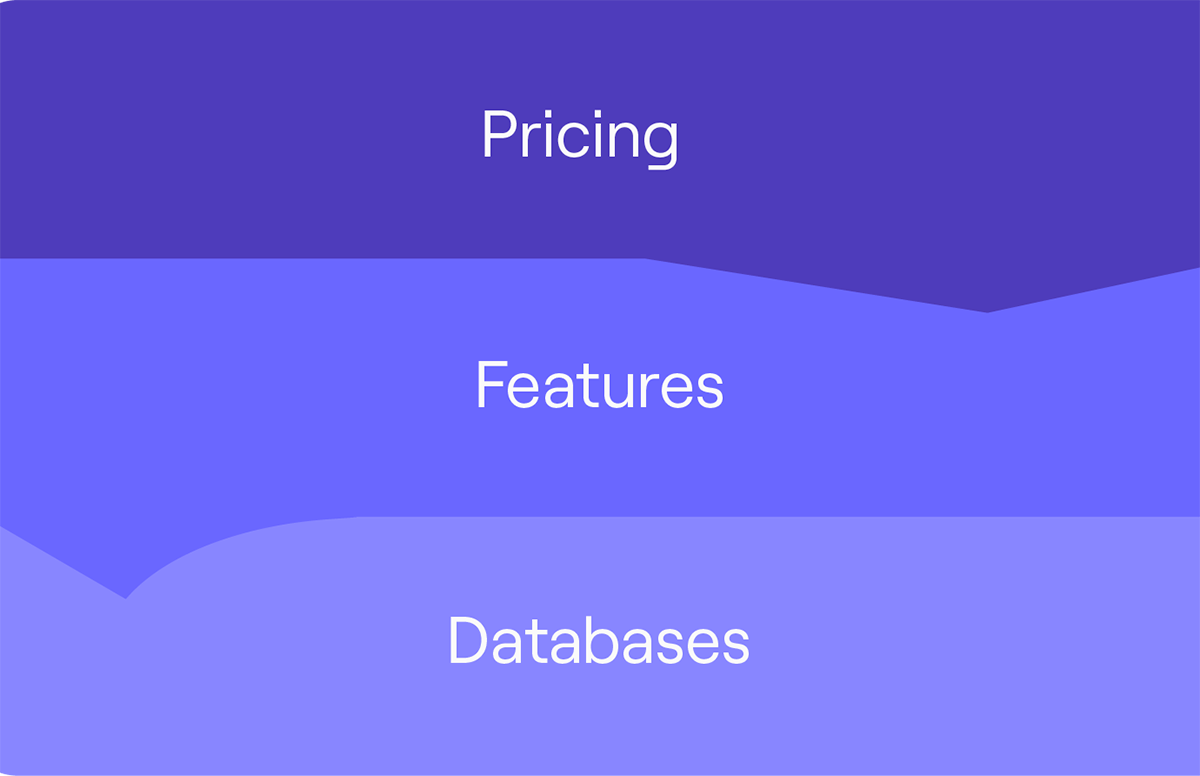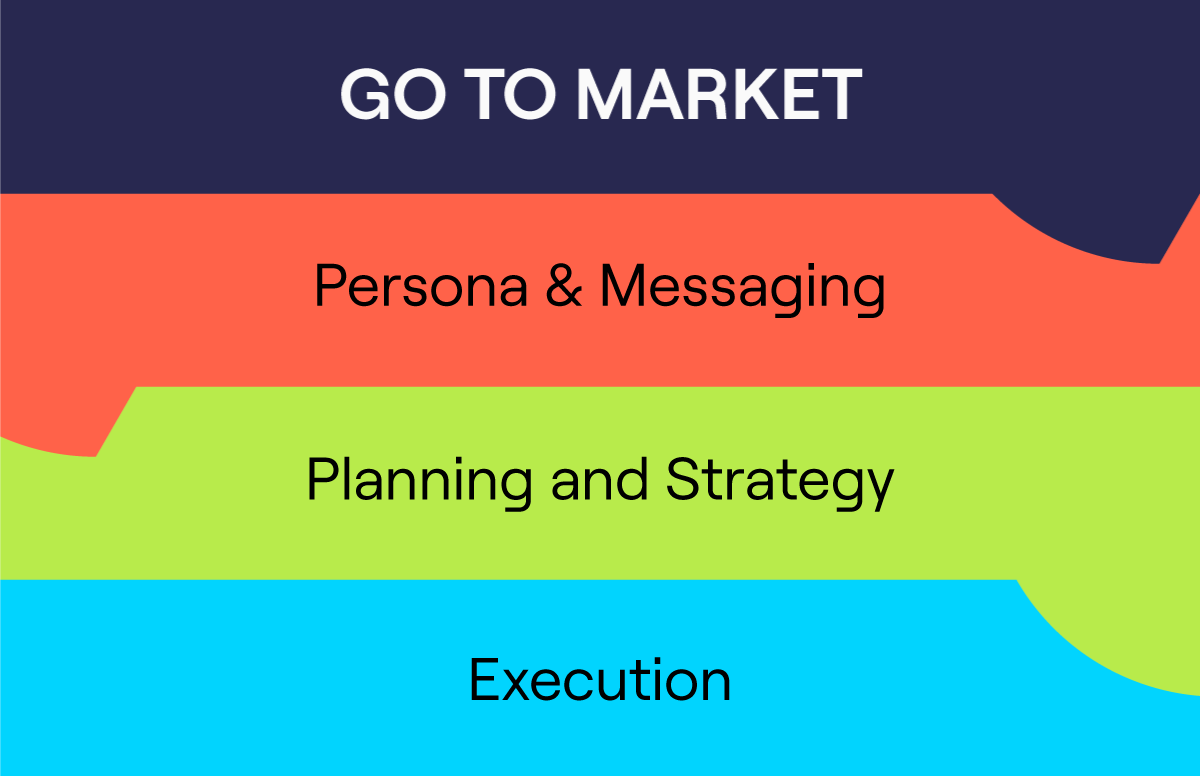How to Successfully Run GTM Strategies in France
French GTM strategies menu:
Every country and every market has its own particular ecosystem, built of rich cultures, customs, expectations, laws and much more.
Making a business venture in each country its own unique challenge, which has to be tackled with a tailor-made playbook to fit the specific market requirements.
France is no different. So what do you need to know about the French market in order to run successful GTM strategies in this region?
Laetitia Fall, Founder of Vendue and French market whizz shares her insights with us in this article. Let’s jump in!
Getting to know the French market
French market nuances
France has a unique economic fabric dominated by small to medium-sized enterprises, rather than startups and large corporations.
For businesses entering France, targeting these businesses can unlock substantial opportunities but are often overlooked.
Laetitia said:
“Often, the mistake is focusing only on startups or large enterprises, ignoring the vast number of small and mid-sized businesses in between, which hold immense potential.”
While large enterprises might have long sales cycles and high competition, small and medium-sized businesses can be more agile and open to partnerships with international businesses.
Now, you might think when entering France that it would make the most sense to set up in the country’s capital, Paris - right?
Well, according to Laetitia, this might not be your best course of action. She said:
“France has a strong regional identity. Certain industries dominate specific regions, such as aerospace in Toulouse or automotive in the North.”
“It’s often more effective to start with regional subsidiaries and then work your way up to national accounts, rather than directly targeting the Paris headquarters.”
Cultural nuances like this are hard to know unless you’re a part of the market. Which is why lots of companies expanding into France do so with regional experts. For example, Indeed.
Indeed successfully entered the French market by hiring a French country manager with deep industry experience and regional knowledge.
Their regional-by-regional strategy allowed them to compete effectively with local players like HelloWork.
Success often comes from leveraging local talent who understand the cultural and economic nuances.
Unfortunately, like the rest of the world, the French market has also had a tumultuous time recently, particularly in the tech sector.
More players = more competitive, with a rise of local and international businesses vying for the same customers. This environment makes it harder for GTM teams to stand out, differentiate their offerings, and capture customer attention.
Some companies have struggled to meet quotas, have experienced lengthened sales cycles, and suffered from retention issues.
However, there are still significant opportunities if you know how to find them.
Laetitia said:
“In France, we are very far removed from the messaging strategies you see in the UK or US. There isn’t the same culture of highly polished, conversion-optimised websites.”
“Most websites here are explanatory—focused on what the company does—without complex funnels. This presents an opportunity for foreign companies to stand out by using more advanced techniques and creating a real differentiation.”
Laetitia’s top three insights for the French market
Getting to know the sales culture
Sales in France require a more nuanced and subtle approach. Aggressive or overly direct sales tactics are generally less well-received and can harm relationships.
Laetitia explained:
“You have to avoid anything that feels too ‘salesy.’ It’s important to be more subtle in your approach, using references and cultural understanding to make the right impression.”
Not only that, but there’s a lot of delicate norms within the language, particularly in professional settings. Addressing someone too casually can result in a negative impression.
Laetitia said:
“In France, using the formal ‘vous’ instead of ‘tu’ is critical, especially with senior decision-makers. There’s a clear distinction between personal and professional relationships, and being too informal can be off-putting.”
This further emphasises the importance of having a localised sales playbook and, ideally, local reps who understand the importance of communication styles and relationship building.
Laetitia added:
“In France, it’s harder to acquire new leads, but once relationships are built, retention becomes easier.”
“Companies tend to maintain partnerships over the long term, preferring stability and co-construction with providers. Breaking into the market requires networking and trust-building.”
When building your GTM motion for France, you may want to consider tapping into local networks, professional clubs or entrepreneurial groups to gain access to potential clients and decision-makers.
Laetitia said:
“When you enter the French market, integrating into networks like the BNI or entrepreneurial groups is key. Even if they seem old-fashioned, this is often how you start finding your first clients.”
Getting to know French advertising practices
So, we now know it’s important to use the right language when having sales conversations with French prospects.
But how does this translate into marketing and branding materials?
The first thing you should know is that the vast majority want this content to be in French and it must be tailored to French preferences.
Emphasising clarity and subtlety over flashy or overly promotional content. And being cautious not to bash any of your competitors.
Laetitia said:
“In France, communication is very corporate, and there are strict norms around how you present yourself. It’s important to be subtle and avoid saying anything that could be interpreted as overly critical of competitors.”
“It’s very controlled, and companies can face backlash or even legal action for directly criticising another business.”
Instead, focus on clearly sharing what you do. And it’s crucial to ensure consistency in messaging across all touchpoints.
And while you might be thinking you can replicate what other companies in France are doing to get a gauge of the right messaging vibe, Laetitia would advise against it, saying:
“Don’t take French companies as examples; there’s often nothing to copy. Instead, focus on being better by using clear and concise messaging that resonates.”
Companies that rely too heavily on English or adopt aggressive sales tactics (similar to US/UK approaches) often struggle.
Getting to know French compliance
When entering any European country, one important thing to keep in mind is GDPR compliance.
GDPR governs how personal data is collected, stored, and processed. It ensures individuals’ privacy rights are protected and mandates strict compliance measures for businesses operating in or targeting the EU.
This can be a significant challenge, especially for companies dealing with data-heavy products.
Laetitia explained:
“It’s crucial to comply with GDPR and avoid mass emailing or overly aggressive prospecting. Sending large volumes of unsolicited emails can lead to legal issues and harm your reputation.”
It’s important to seek local legal advice when expanding into France (or any European country for that matter!) to ensure you’re GDPR compliant and avoid significant legal ramifications.
Getting to know French strategies and channels
Social media
You may be used to your reps using social media for outreach, or actively encourage them to post on LinkedIn often.
In France, this is much less common.
Social media use by employees, especially for professional purposes, is often tightly controlled by the organisation.
Laetitia explains:
“In many French companies, even salespeople are not allowed to post on social media without approval. The communication is managed centrally to avoid missteps.”
Freelancers or external individuals often dominate social media discussions rather than company employees, as organisations maintain a conservative stance on employee engagement.
This is likely because most companies are cautious about liability. For instance, public criticism of competitors or sharing misleading information can lead to legal disputes or damage claims.
Trade shows
Trade shows and events are highly effective in France and play a significant role in B2B business development. They’ve become a critical channel for building trust, generating business, and establishing credibility in the French market.
Laetitia said:
“Trade shows work extremely well in France. They are a ritual where you see people every year, and it’s a sign of trust to consistently show up.”
Many French companies dedicate significant parts of their budgets to trade show participation, making it a cornerstone of their marketing strategies.
Trade shows provide a unique opportunity to meet clients and decision-makers in person, helping to build relationships that might be difficult to achieve online.
Selecting the right trade shows is essential. Businesses should identify events that align with their target industries and use them as a platform to establish visibility and trust.
LinkedIn ads
LinkedIn ads are most effective when integrated into a broader multi-channel campaign, targeting specific companies or personas across various touchpoints.
Laetitia explained:
“A successful strategy often includes LinkedIn ads alongside other outbound efforts, like targeted email campaigns or cold calls. The combination of these approaches increases engagement and impact.”
The ability to target specific companies or job titles makes LinkedIn ads particularly useful for reaching high-value accounts in France.
Partnerships
Collaborating with local organisations or institutions is one of the best ways to gain credibility and trust in the French market.
Laetitia shared an example:
“Payplug’s partnership with BPCE France, one of the largest banking groups, allowed them to reach more customers and position themselves as a trusted local provider.”
“Working with trusted local entities gives you immediate credibility and access to their networks.”
“In France, prescriber networks play a big role. Finding the right intermediary can give you access to decision-makers who trust these networks.”
Companies that align with French values or partner with French institutions often gain an edge, as there is a strong cultural preference for local solutions.
Laetitia added:
“In France, there’s a real preference for French products or services. Partnering with a local entity can reinforce your positioning as a trusted and culturally relevant provider.”
Cold calling
You might think that in a market where relationships are king, cold calls might not work.
However, Laetitia said:
“Cold calling works well in France, especially for larger accounts and mid-market businesses. It’s an approach that’s still accessible and can deliver results even for less experienced sales teams.”
“But it’s important to be good at it. Cold calling demands a level of expertise, especially in crafting your pitch and understanding your target audience.”
Targeting senior decision-makers directly through cold calls can be more difficult, as they tend to avoid unsolicited outreach. It’s better to start lower in the hierarchy and gather information before engaging higher-level executives.
Getting to know customer loyalty
The good news here is that once you have customers in France, it’s much easier to keep them. Provided you’re doing enough to foster relationships with them.
And the way in which business deals are done generally reflects this.
Laetitia said:
“It’s common in France to sign multi-year contracts. Clients prefer to stick with providers they trust rather than switching frequently, which aligns with their preference for stability.”
Loyalty in France is often based as much on the strength of the relationship as the quality of the product or service. Trust and personal connections play a significant role in customer retention.
She added:
“In France, there’s a strong emphasis on account management. Once you’ve secured a client, it’s about exploring all the opportunities within that account and maximising the relationship.”
Getting to know French pricing
Price is a big part of any GTM strategy, but how should you approach this in France?
Well, according to Laetitia, pricing should be straightforward and easy to understand, avoiding unnecessary complexity.
She said:
“In France, pricing needs to be simple and clear. Whether it’s a subscription model or consulting-based rates, don’t try to reinvent the wheel—it won’t resonate.”
French companies are accustomed to specific pricing structures, such as subscription models in SaaS or per-day consulting fees in service industries. Adapting to these norms is important to avoid any aversion.
Long-term contracts are also common in France. Offering multi-year agreements aligns with the local preference for stability and long-term partnerships.
Laetitia said:
“In France, multi-year agreements are standard. Customers appreciate the consistency and are more likely to commit to long-term deals if they trust the provider.”
Another thing to keep in mind is budget cycles and seasonal trends as they play a crucial role in pricing strategy. French companies often allocate budgets during specific times of the year, particularly in Q1 and Q4.
Laetitia explained:
“Timing your offer just before or during these cycles can make the difference in securing a deal.”
Key takeaways
Okay, so you’re a brand entering French markets for the first time. What would Laetitia’s advice be for you?
These are her final top tips:
- Hire a French market expert to navigate cultural nuances.
- Focus on building relationships through local networks and partnerships.
- Approach the market regionally and target small and mid-sized enterprises, and industry hubs strategically.
- Be subtle in marketing and sales messaging; avoid aggressive or overly confident approaches.
- Understand the seasonality and budget cycles unique to the French market.



